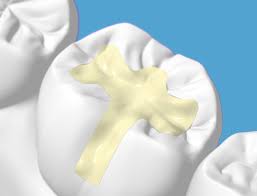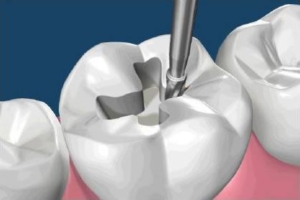Caries is one of the most common oral cavity pathologies in the world, which is why it is very likely that at least one of the arched teeth has undergone reconstructions with composites following a root canal therapy.
Tooth restoration: reconstructions with composites
 Preserving and preserving natural teeth has been a necessary condition of dentistry for some time, after years of indiscriminate tooth extractions, modern dentistry is increasingly inclined to save natural teeth.
Preserving and preserving natural teeth has been a necessary condition of dentistry for some time, after years of indiscriminate tooth extractions, modern dentistry is increasingly inclined to save natural teeth.
Following a deep caries, today in fact, we proceed with a devitalization and reconstruct the tooth with composite materials. In this way, by “filling” the tooth with special resins, the tooth function, masticatory and aesthetic, is completely restored. So composites take the place of lost dental enamel, but are they as strong as enamel?
Resistance of reconstructions with composites
The stresses to which our teeth are subjected during a day are many, think of the mechanical frictions during chewing or those due to nocturnal bruxism. Attacks from acid substances are added to the mechanical stresses, such as carbonated drinks, acidic foods, capable of attacking the enamel and also reconstructions with composites.
I compositi utilizzati per la ricostruzione del dente sono soggetti, così come lo smalto, a numerose variabili che ne possono intaccare l’integrità:
- bruxism
- trauma
- malocclusions
- acid ph
- incorrect brushing
Each of these variables can affect the duration of dental reconstructions over time.
Damage to reconstructions with composites
The continuous stresses on dental reconstructions could lead to:
- microfractures of the reconstructions with composites;
- rough surface of composites.
In both cases the most serious consequence is the possibility for the bacteria to colonize the fractures or the rough part of the composites and give rise to a new infection.
A new caries is the first cause of replacement of reconstructions Dental.
Deterioration of composites
Hydrolytic degradation of composites could be another factor of deterioration of composites reconstructions. Water and carbonated beverages can soften the materials of dental reconstructions in the long run.
Are there more resistant composite materials than others?
 Dental research is focusing on the strength of composites reconstructions precisely to evaluate the different materials used and to address clinical therapies.
Dental research is focusing on the strength of composites reconstructions precisely to evaluate the different materials used and to address clinical therapies.
On the Journal of the Mechanical Behavior of Biomedical Materials a study was recently published in which researchers analyzed the structural composition of the resins to understand their degree of resistance over time.
The parameters that determine the strength of composite materials for dental reconstructions are:
- particle diameter;
- particle volume;
- bonding of particles between them.
From the research it emerged that, to date, the materials for reconstructions with composites that guarantee longer duration are the nanocomposites, capable of resisting mechanical and chemical stresses.
Indications that, if confirmed, will lead to new therapeutic indications to guarantee more effective and durable dental reconstructions.
















